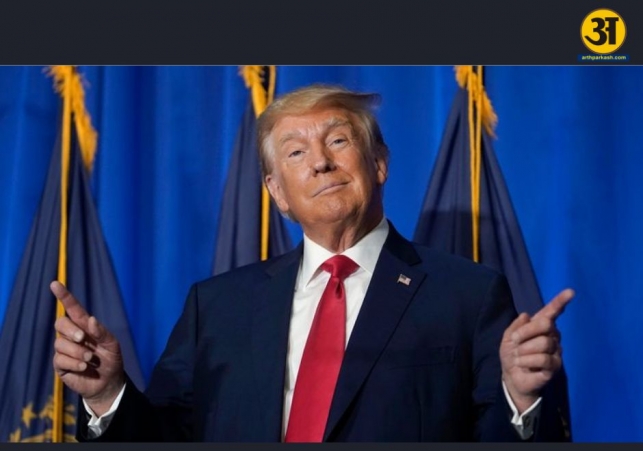
Trump 2.0 vs. Trump 1.0: key differences
Trump 2.0: how the Former President's comeback differs from his first term
Donald Trump’s second term as President, starting in 2025, is very different from his first term in 2017. People across the political spectrum – Democrats, Republicans, and independents – are noticing this change. This time, the response to Trump is not the same as it was when he first took office. The reasons behind this shift can be explained by five key emotions: awe, fear, greed, purpose, and resignation. These emotions are shaping how people view Trump 2.0 compared to Trump 1.0.
In 2017, Trump’s inauguration was a spectacle, and his first year in office was marked by bold actions. However, many viewed his success as a fluke or attributed it to external factors. Trump’s actions were seen as disruptive, and he had a lot to prove. But in 2024-2025, Trump’s situation is different. This time, his victory is seen as legitimate, and his mandate is clear. Even critics are starting to recognize that Trump’s approach to American politics has been successful. This recognition has led to a shift in how people view him, with five major emotions coming into play.
The five emotions behind Trump 2.0
The first emotion is awe. Despite his controversies, including criminal charges, the pandemic response, and his refusal to accept the 2020 election results, Trump has achieved significant political success. His ability to maintain control over his loyal supporters, fight multiple legal battles, and relentlessly campaign at 78 years old has impressed many. He has managed to create a new political reality and has won big. This success has led people to admire his resilience and persistence, even if they disagree with his policies.
Trump’s political power is undeniable, and it has become clear that his victory in 2024 was not a fluke. He has captured the cultural mood of the country, and even those who criticize him are now engaging with him as a legitimate political force. This is a significant difference from 2016-2017, when many believed his rise was temporary or the result of external factors. Today, Trump’s victory is widely seen as the product of his efforts and the clear support of his base.
ALSO READ: Taliban refuses Trump’s call to return $7 billion in US Weapons
ALSO READ: Donald Trump prepares for inauguration: President-elect's team unveils key agenda
The second emotion is fear. Trump has the ability to hold grudges and is known for seeking retribution against those who cross him. His control over the government and his power to influence politicians and institutions have created fear among many. Trump’s ability to use the state apparatus to harass his opponents, as well as his online army of supporters, makes him a powerful and unpredictable figure. His decisions can have serious consequences for individuals, companies, and countries, and many fear the impact of his policies.
Trump’s control over the federal government has also increased. He can now remove protections for civil servants and influence legislation with ease. Unlike 2016-2017, when his power was still growing, Trump now has the means to act on his impulses without worrying about political consequences. This has made it clear that opposing Trump comes with risks, and many have fallen in line with him to avoid conflict.
The third emotion is greed. Trump has a unique ability to appeal to business leaders, political figures, and media influencers by offering them opportunities for profit and influence. Those who support him can benefit from deregulation, federal contracts, and access to power. Many business leaders, especially in industries like energy and finance, see Trump as a way to expand their influence and increase their wealth. Supporting Trump can also open doors to political opportunities, making it a tempting prospect for those seeking power and profit.
Trump’s supporters know that loyalty to him can bring rewards, such as favorable policies or regulatory relief. On the other hand, those who oppose him risk losing out on these opportunities. This dynamic has shaped the political landscape and made it clear that supporting Trump can bring tangible benefits, while opposition can lead to consequences.
The fourth emotion is purpose. Trump has inspired deep idealism in his base, with many of his supporters believing that he can bring about real change. Trump does not just lead a political party; he leads a movement. For his supporters, Trump represents the chance to reshape the country according to their values and beliefs. Whether it’s reducing immigration, promoting entrepreneurship, restoring traditional values, or challenging foreign adversaries, Trump offers his followers a sense of purpose.
His base sees him as a champion of their ideals and believes that under his leadership, they can achieve their goals. This sense of purpose has only grown since 2016, with Trump’s time in office and his time in opposition helping him expand his appeal. His supporters are motivated by the belief that he can protect American interests and bring about positive change for the country.
The fifth emotion is resignation. After Trump’s 2024 victory, many of his critics feel lost and unsure of how to respond. In 2016, resistance to Trump was clear and energetic, with many opposing his policies and rhetoric. But in 2024-2025, the mood has shifted. The Democratic Party is struggling to find a leader and a clear path forward. There is debate within the party about whether to shift toward the center-right or to become a more aggressive force against Trump from the left.
Many civil society groups are continuing the fight against Trump, but they face low morale and difficulties. Protests have become more challenging, and universities are no longer the free spaces they once were. The costs of opposing Trump have risen, and his critics are struggling to articulate an alternative vision for the country. There is a sense of resignation among those who disagree with him, as they struggle to find a way to counter his influence.
Trump’s influence on the Political landscape
Trump’s second term is characterized by a sense of awe, fear, greed, purpose, and resignation. These emotions have shaped how people view his leadership and the political landscape in the United States. While his critics continue to resist him, many have been forced to acknowledge the strength of his support and his ability to shape American politics. Trump’s influence is undeniable, and his political success has made him a central figure in the nation’s future.
As the political environment continues to evolve, it remains to be seen how these emotions will continue to shape Trump’s second term. His ability to inspire awe, evoke fear, create opportunities for profit, provide a sense of purpose, and provoke resignation will continue to drive the dynamics of American politics. Whether his influence will endure or whether new realities will emerge remains uncertain, but for now, it is clear that Trump is in control.





